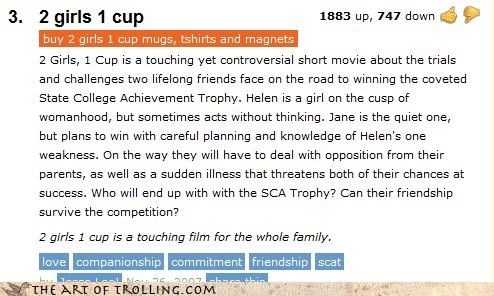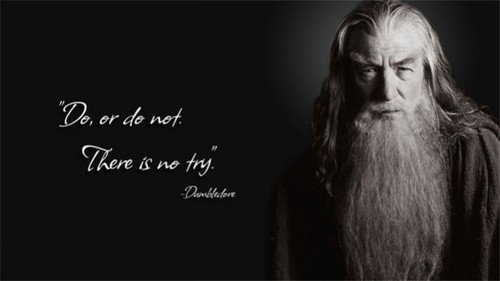They always said that if you are getting yelled at by both sides then you are getting it right. I remember my university lecturer was talking about elections at the time, but as a News Editor it’s true of most things.
Today’s topic for people to have a go at me about was the politics of people dying on the roads.
Here is a typical (fictional) press release that we might get from the police:
Police were called to the junction of the High Street and the B9999 at 12.46pm today (Tuesday) after reports of a collision involving a blue Nissan Micra and a pedestrian.
The pedestrian, a 7 year old boy, was taken to Anytown Hospital where his injuries are thought to be serious.
PC John McPoliceman of the Countyshire Roads Policing Unit said: “This was a tragic incident and we would appeal for anyone who saw the incident and either the pedestrian or a blue Nissan Micra in the run up to the crash to contact us on 101.”
Since I live in Anytown, I know that junction well, and I know my listeners will know it as that horrible busy one where all the crashes happen.
So here is the textbook, journalistic write up. You will have seen this in local newspapers and heard it on local radio stations, and will continue to hear it.
A 7 year old boy has been left with serious injuries after being hit by a car this lunchtime in Anytown.
It happened on the busy junction between the High Street and Nexttown Road.
Police are asking for anyone who saw the incident to call them on 101.
Who is at fault here? Who hit who?
Well first of all we need to talk about the Contempt of Court Act. You are innocent until proven guilty in a court of law. Any person who influences a jury otherwise is committing a criminal offence and will be taken to court and prosecuted. That includes journalists. That includes ME, personally. If I am found to have implicated the driver in my reporting then I get charged with a criminal offence.
And so we write these awkwardly phrased stories.
A grandmother of 5 has been praised by police after fighting off muggers with her handbag and sitting on one of them till police arrived…
A 28 year old man has been arrested in connection with the incident.
But this is where it gets political.
In the example above, the most correct phrasing would be exactly as the police had it:
A 7 year old boy has been left with serious injuries after he collided with a car…
Now I’m sorry but that sounds stupid. More so, you just do not talk like that in real life. “Did you have a good day darling?” “Not really – At lunchtime I saw a child colliding with a car, I had to give the police a statement.” No. Stop it. It’s laughable and this is not a funny subject.
“X was hit by a Y” is the standard phrase for people getting hit by vehicles. It’s the one I use because it gets the message across. It tells my listeners what happened without them pausing to say “that’s a funny way of saying it” and then missing my next story. I get 2’30” to tell you as much as I can, I’ve put 57 minutes of work into getting it ready, and I’ll be damned if I lose your attention because of sloppy phrasing.
Although it does lean slightly towards saying the driver is at fault, it’s open enough that you can imagine several scenarios where the child would be at fault. Of course it’s never the child’s fault… but the actions of the child would mean the driver was not at fault. Legally, I am safe from prosecution.
My other options are:
“X was hit WITH a Y” Whether it’s a car or a bat, it implies that it happened deliberately. I would be completely making that up.
“X was hit by the driver of a Y” Well this just says that the driver got out and punched the kid before driving off. Wrong again.
What about if it’s two cars?
Well that’s different.
“A Nissan Micra was hit by a Ford Focus…” When it comes to cars, vans, and lorries, a lot can be inferred from who went into who. So we need to be more careful. But here my job is easy. “This great big lorry full of cheese collided with another one carrying crackers…” is something you can imagine yourself saying (in very bizarre circumstances) and so the news story changes.
A woman has been left with serious injuries after her Nissan collided with a Ford this lunchtime in Anytown.
It happened on the busy junction of the High Street and Nexttown Road.
Police are asking for anyone who saw the incident to call them on 101.
This tells you the story in a simple straight forward way. There is no thinking for you to do about what I just said. It’s also true. He injures would have come (for example) from her brain colliding with the inside of her skull, as her head collided with something on the inside of her car. Or from her neck being jerked so violently that the spinal column was damaged. She was INSIDE her car. The Ford didn’t touch her.
Where it gets difficult is when cyclists become involved.
EDIT: An important note about road traffic law and the court system.
If the driver is at fault, the pedestrian / cyclist goes to hospital, the driver goes to court.
If the pedestrian / cyclist is at fault, the pedestrian / cyclist goes to hospital. That’s it.
So when avoiding contempt of court, the expectation is ALWAYS that the driver is to blame. I’m not going to bias a jury deciding whether a 7 year old with head injuries is guilty of road traffic law. The injured party is ALWAYS the victim in the mind of the person writing it because they are the poor sod getting their bones reset.
I wonder if this adds unconscious bias in the minds of some journalists? That it’s legally SAFER to imply the victim is to blame, because they obviously CAN’T be to blame, because they are the victim?
So here are my options.
Cyclists are people, balanced on small bits of fast moving metal. Yeah.
First, lets assume we know it’s a male person on a bike.
“A man has been left with serious injuries after his bike collided with a Ford Focus this lunchtime in Anytown.” That sounds a bit unbalanced, like he rode his bike into the car. Implies he’s to blame.
“A man has been left with serious injuries after a Ford Focus collided with his bike this lunchtime in Anytown.” … Luckily he was in the sandwich shop at the time. Unfortunately he was hit by a meteor as he ran out to investigate. It’s better but it doesn’t sound right, because his injuries come from HIM colliding with the car, not his bike.
We can take this confusion out by using another word: A Cyclist (defined in this and many other cases as a person riding a bike) has been in collision with a Ford Focus. This is especially useful as VERY OFTEN the police get on scene and ignore the person on the floor who’s being held down and rolled about by paramedics. The cyclist isn’t going anywhere, but all the witnesses are.The police leave the cyclist in the care of the ambulance crews who strap them firmly to a spinal board and bugger off in an ambulance asap. We hear about the accident and the press office tell us that it’s bike vs car. Is it a man or a woman? No idea.
It’s a person. People get hit by things
“A cyclist has been left with serious injuries after they hit a Ford Focus this lunchtime in Anytown.” Silly Cyclist rode into a car. Wrong.
“A cyclist has been left with serious injuries after they were hit by a Ford Focus this lunchtime in Anytown.” This sounds fine to me. Yet still, people tell me they are not happy with this. It is exactly the same wording as if a child pedestrian had been hit, but I get complaints saying I am placing blame on the cyclist, not the driver. That by referring to the cyclist as a person, and the car as a thing, I am implicating blame on the person. Personally I consider it the same as the above example. I’m leaving it to people’s imaginations meaning I am safe from prosecution. But I accept I am not all knowing, and am open to opinions.
“Cyclist hit WITH a Ford” … by Superman, he picked it up and smacked the cyclist in the head with it. Definite racist overtones against Kryptonians there.
“Cyclist hit by a driver in a Ford”… who wound down his window and punched him as he drove past at a nice safe distance. Nope.
But although I will continue to use “X hit by a Y” and I stand by my choice to do that, is there ANY other way of doing it?
To my mind: Only if Cyclists stop being people. We may need to write about them as if they were soft squishy vehicles. This would take us back to using collision, and the ONLY option left available:
A cyclist has been left with serious injuries after a collision involving a Ford Focus this lunchtime in Anytown.
It happened on the busy junction at the High Street and Nexttown Road.
Police are asking for anyone who saw the incident to call them on 101.
Does this work? To me it sounds clunky, vague. But the thing is… language evolves. That’s one of the many reasons I love it. Maybe, just as we got used to saying “The Information Super Highway, or Internet…” we need to stop thinking of people on bikes as people, and see them as vehicles on the road like any other.
Maybe if drivers stopped seeing cyclists as people and started treating them like drivers of person shaped vehicles then we wouldn’t get so many collisions in the first place? Who knows.



